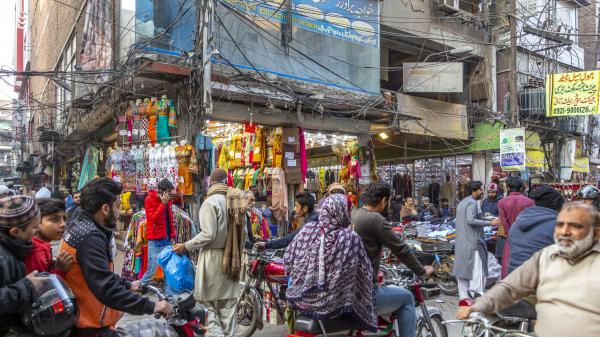Pakistan turns to daylight saving to address power crisis
It is hoped that turning the clocks forward by one hour during the summer months would help save energy in Pakistan.

Pakistan turns to daylight saving to address power crisis
©iStockphoto.com/Gustaf Brundin
For the first time since 2002, Pakistan will use daylight saving time to save energy as it faces a power crisis. The clocks will move one hour ahead (to UTC+6) at midnight between Friday, May 31, and Saturday, June 1, in 2008.
The need for daylight saving
Like many other countries, Pakistan plans to use daylight saving time to save energy during the peak summer season. Pakistan is struggling to cover for a 4000-megawatt power shortfall, and the problem may intensify as summer approaches. The power crisis results mainly from a 50-percent reduction in hydropower generation due to falling river water levels caused by the slower melting of snow, according to Pakistan’s Minister for Water and Power Raja Pervez Ashraf (cited in Thaindian News).
Daylight saving time is used to save energy by extending daylight, therefore reducing the need to use artificial lighting, air-conditioning and other electrical appliances. In recent times, electricity supplies to homes, businesses and factories across Pakistan were cut for several hours a day.
Other energy-saving initiatives
Pakistan’s federal cabinet called for all markets in the country to close by 9pm on June 1, 2008, to prepare for daylight saving time, which is expected to last until late August. Moreover, Pakistan’s cabinet recently decided to invite international bids for generating 1200 megawatts (MW) of electricity on a fast-track basis. A barge-based power plant would be imported to meet the needs of the commercial capital Karachi and the 1200 MW being consumed by the southern port town would be diverted to other cities, according to Ashraf (cited in Thaindian News).
The country’s industrial zones will also observe off-days on a rotation basis and air-conditioners in all government offices will be switched off between 8am and 11am. The government plans to import 10 million energy-saving bulbs.
End date, initial plan
timeanddate.com recently contacted Pakistan's Ministry of Interior to confirm the accuracy of the nation's daylight saving schedule. A government official from the Ministry said clocks would most likely move back one hour at midnight between August 31 and September 1 in 2008. He also said no intermission has been given to change the schedule.End date changed to October
Late in August 2008, it was announced that Pakistan's daylight saving time would be extended to midnight between October 31 and November 1, 2008.
Recent daylight saving history
Similar moves to introduce daylight saving time in the country have failed previously. In 2002, the government decided to adopt daylight saving time, beginning from the first week of April, to maximize the use of daylight and to save energy. Daylight saving time ended on the first Sunday in October that year and has not been used since. The daylight saving plan failed due to a number of reasons. There were people who did not know about daylight saving time and others blamed the government for not informing or educating the public about daylight saving time – its functionality and the rationale behind using it.